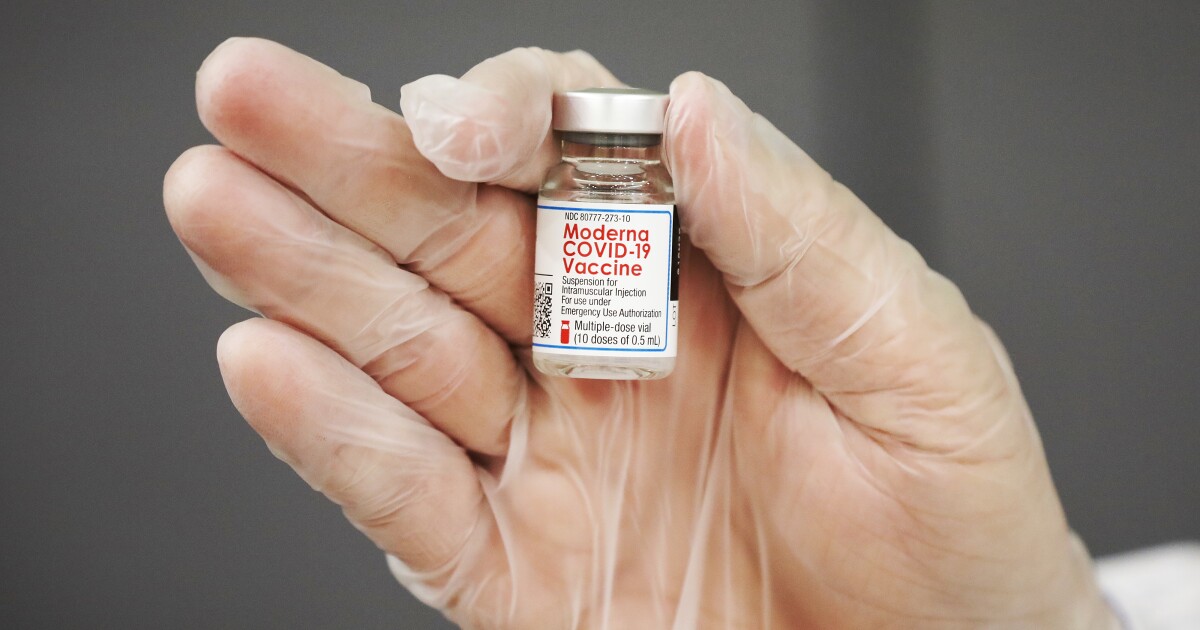Moderna Inc. said it began distributing experimental doses of its COVID-19 vaccine to children as part of a study to determine whether it is safe and effective in children as young as 6 months.
The study aims to enroll about 6,750 volunteers in the United States and Canada. The National Institute of Allergy and Infectious Diseases and the Advanced Biomedical Research and Development Authority are collaborating with the company, Moderna said in a statement.
In the first stage of the trial, researchers will test several doses of the vaccine to see which one works best. Study participants aged 2 to 11 will receive 50 or 100 micrograms per dose, while those aged 6 months and just under 24 months will receive 25, 50 or 100 micrograms per dose.
All doses will be administered twice, 28 days apart.
For comparison, each dose of Moderna for adults contains 0.5 milliliters of vaccine. This is equivalent to 500 micrograms.
The researchers will analyze data from the first phase of the study to determine which doses to administer to children and babies in the second phase of the study. In this part of the study, participants will be randomly assigned to receive the vaccine or a saline placebo. Then they will be monitored for one year to see if the vaccine works better than the simulated injections.
The effectiveness of the vaccine will be assessed in one of two ways.
If they find that the risk of developing COVID-19 is significantly lower among children who receive the vaccine than among those who receive the placebo, the researchers will be able to compare these two groups and calculate the amount of reduced risk as a result of the vaccination. The more the risk is reduced, the more effective the vaccine is.
However, COVID-19 is less likely to reach children than adults. Although children make up about 22% of the U.S. population, they account for only 11.6% of COVID-19 cases, according to data from the Centers for Disease Control and Prevention. And cases for all age groups, including children, are expected to fall as vaccines are distributed to adults and the country is approaching collective immunity.
These factors may mean that there will not be enough cases of COVID-19 among clinical trial participants for researchers to make a statistically significant calculation of the vaccine’s effectiveness. In this case, the study team will also examine the children’s immune response in the test and compare it with that of adults. If children generate enough antibodies compared to adults, the researchers will consider this as evidence of the vaccine’s effectiveness.
Parents interested in having their children participate in the test can find more information on the subject at www.kidcovestudy.com. The trial is expected to continue until June 2023.
Pfizer and BioNTech are testing their COVID-19 vaccine on children as young as 12 years old. Its initial clinical trial included 16- and 17-year-olds, and the vaccine is currently the only vaccine authorized for use in minors in the United States.
Johnson & Johnson plans to test the single-dose and two-dose regimens of its vaccine on children aged 12 to 17, according to the Food and Drug Administration.
